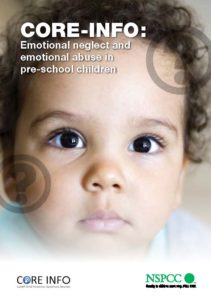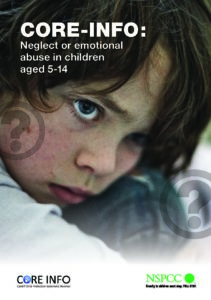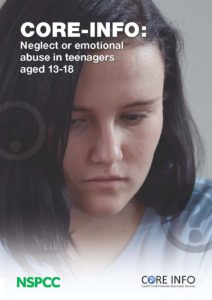The Graded Care Profile (GCP) equips professionals to work with families in identifying the presence and nature of neglect within a family. The GCP is designed to be used by any professional in any agency working with a family where there is a concern about the care of the children. It is relevant to Health Professionals, Early Help, Education, Think Family and Children Social Care.
What is Neglect
Neglect is the ongoing failure to meet a child’s basic needs and is the most common form of child abuse. A child may be left hungry or dirty, without adequate clothing, shelter, supervision, medical or health care. A child may be put in danger or not protected from physical or emotional harm. They may not get the love, care and attention they need from their parents. A child who’s neglected will often suffer from other abuse as well. Neglect is dangerous and can cause serious, long-term damage – even death.
The persistent failure to meet a child’s basic physical and/or psychological needs, likely to result in the serious impairment of the child’s health or development.
Working Together to Safeguard Children 2018
Types of Neglect
Neglect can be a lot of different things, which can make it hard to spot. But broadly speaking, there are 4 types of neglect.
- Physical neglect
A child’s basic needs, such as food, clothing or shelter, are not met or they aren’t properly supervised or kept safe. - Educational neglect
A parent doesn’t ensure their child is given an education. - Emotional neglect
A child doesn’t get the nurture and stimulation they need. This could be through ignoring, humiliating, intimidating or isolating them. - Medical neglect
A child isn’t given proper health care. This includes dental care and refusing or ignoring medical recommendations.
Child Neglect is a complex and challenging area of work for safeguarding practitioners. Research and learning from Serious Case Reviews tell us that neglect is multi-faceted and requires a robust multi-agency response in order that we tackle it effectively.
On this page you’ll find resources and tools which support effective practice in safeguarding.
Neglect 7 Minute Briefing
Neglect Resource Pack
Tools for assessing neglect
Instead of giving a diagnosis of neglect, it defines the care showing both strengths and weaknesses.
Additional Resources
The Cardiff University, Department of Child Health and NSPCC have produced Core-Info leaflets on how neglect and emotional abuse affects children aged;



